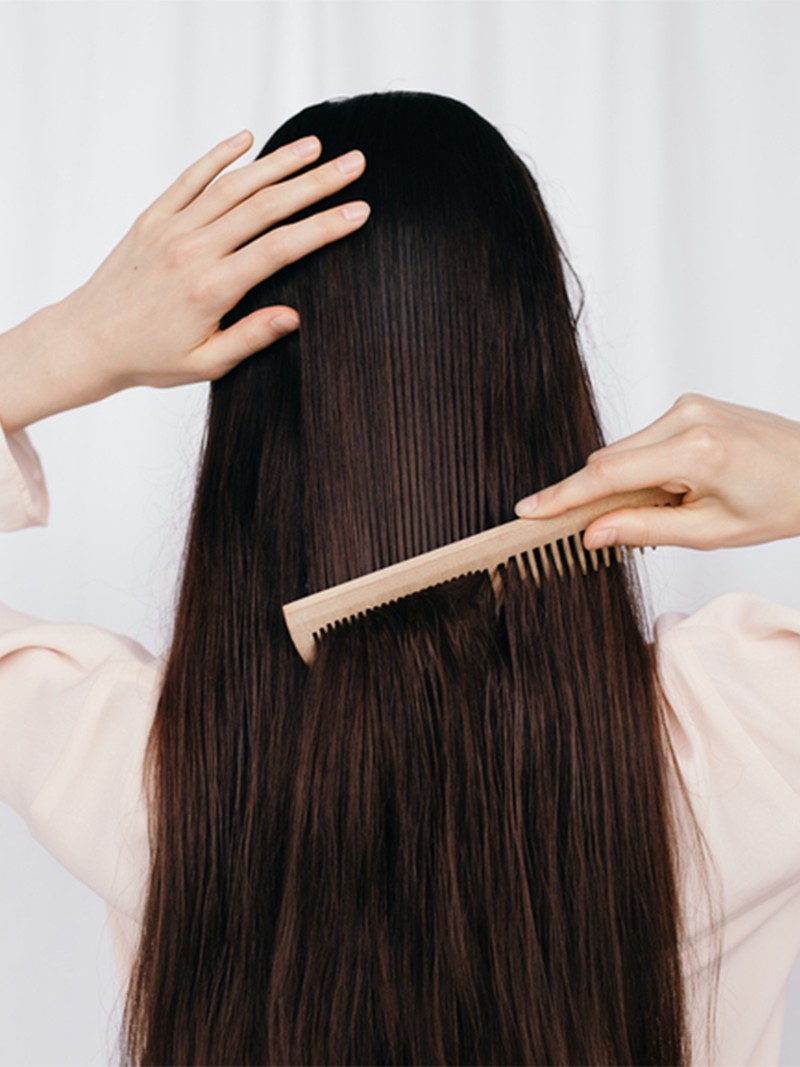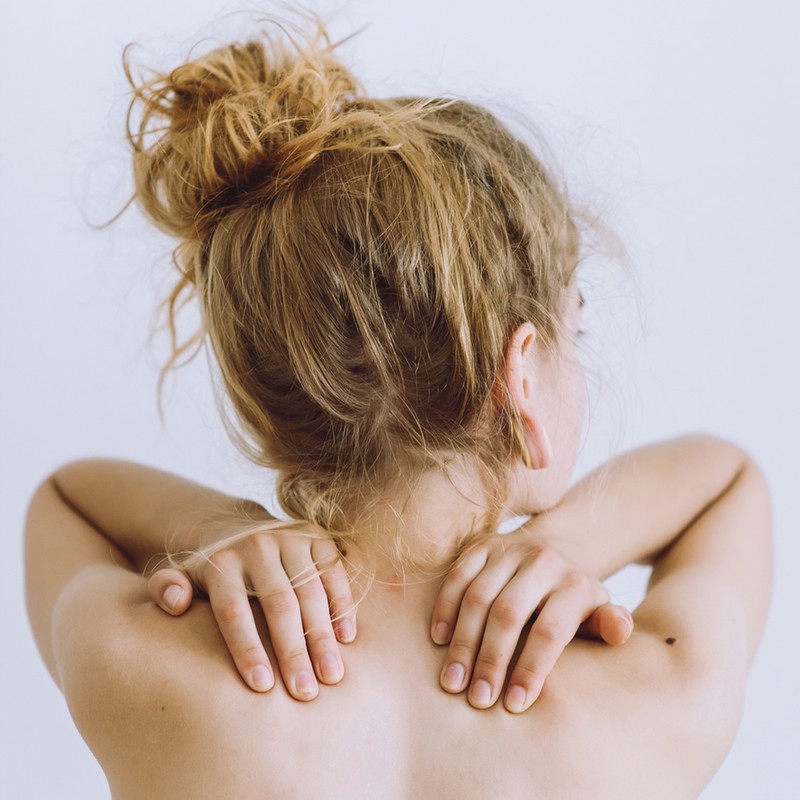Why Your Hair Is Greasy & How To Fix It
Understand What’s Happening
“Our scalps are a very sebaceous (oily) environment. In fact, your scalp, face and chest have more sebaceous glands than anywhere else on your body – tens of thousands on your scalp alone. It’s why a build-up of grease a few days after washing is completely normal. You also have sweat glands on your scalp and a constant turnover of skin cells, both of which also contribute to limp roots.” – Anabel Kingsley, trichologist at Philip Kingsley
“It’s not uncommon for the change of seasons to cause hair to become greasier, but hormonal fluctuations also play a part. Wearing hats also increases scalp warmth, and as a result encourages more oil production. Coarser hair will absorb more of this oil, but on finer hair types, it will sit on the surface, causing grease to show up sooner.” – Michael Van Clarke, celebrity hairdresser
Don’t Believe The Myths
“People sometimes say you can reset your hair’s greasiness by not washing it for a long time, but this isn’t true. You can’t physically train your scalp to produce less oil. Ultimately, there’s a balance to be struck. Often, people go the other way and over-wash their hair – the key is to try and shampoo it every two days, and always ensure you’re using formulas that aren’t loaded with silicones. Silicones clog the pores, causing an overreaction that’s likely to produce excess oil.” – Michael

Hormones Play A Big Role
“Testosterone increases oil production, so the scalp can get particularly oily during puberty. Likewise, certain oral contraceptive pills, monthly hormonal fluctuations and high stress levels can increase testosterone production in women, leading to an overly oily scalp – and oily skin as well. On the other hand, things that decrease testosterone levels, or increase oestrogen levels, can lessen oil production. For instance, rising oestrogen levels in pregnancy, especially during the third trimester can decrease oil secretion. In short, it’s worth being in tune with your hormones, and taking a note of what could be causing excess grease and why.” – Anabel
Know Your Ingredients
“Witch hazel is brilliant for absorbing excess oil. Likewise, salicylic acid gently exfoliates and breaks down excess oil – you’ll find it in certain masks and treatments. Finally, try to buy products that contain zinc PCA. This helps to control sebum production and keep everything in check.” – Anabel
“Our Scalp Balancing Shampoo at Van Clarke uses orange oil and sulphur. Both of them regulate excess oil within the scalp, but without ever stripping or drying out the hair.” – Michael
Adapt Your Routine
“You should apply the same logic to your scalp as you do to the skin on your face. Greasy skin needs a regular cleanse – so if your scalp is oily, wash it properly. It’s also helpful to swap out your regular shampoo for an anti-microbial one. If your scalp is producing excess oil due to hormonal imbalances – like with conditions such as PCOS – medication can help and your GP will be able to advise you on this.” – Anabel
“Also, be careful with your conditioner. You shouldn’t avoid it altogether just because your hair is greasy, but you do need to apply it away from your scalp and towards the mid lengths and ends. It’s important to use a conditioner suitable for your hair texture, too. Oil-heavy conditioners will weigh fine hair types down and cause it to become greasy quicker.” – Michael
Quit Touching Your Hair
“It sounds basic but try not to touch your hair too often. You can transfer oil and dirt from your hands directly onto your strands and it has a big impact. Apply smoothing products – or products with a high oil content – sparingly and always avoid your roots. Similarly, avoid over brushing your hair. This can transfer old oil and product onto it, making it look greasy and dull. You should also wash your brush once a week with a solution made of water and baking soda – 1 tablespoon of baking soda per 1 cup of warm water. Anything that stimulates your scalp too much will only cause further oil production.” – Anabel
Finally, Stock Up On The Right Products
“Scalp toners containing astringent ingredients like witch hazel and anti-microbials are great. As are masks with salicylic acid – you only need to use it once a week to see a difference. If your oiliness is accompanied by any itching and flaking, this is often because yeast thrives in oily environments, so try using an anti-microbial shampoo. I love our Itchy/Flaky Scalp Shampoo which contains something called Piroctone Olamine. It’s an active ingredient that specifically targets the yeast to minimise irritation. If you don’t shampoo daily, or your hair starts to get greasy by the end of the day, use a dry shampoo, but one with scalp health benefits. Look for gentle ingredients like zinc, chamomile and aloe vera extract to nourish, hydrate and soften.” – Anabel
For more hair advice and to book an appointment with Michael or Anabel visit
VanClarke.com and PhilipKingsley.co.uk
DISCLAIMER: We endeavour to always credit the correct original source of every image we use. If you think a credit may be incorrect, please contact us at info@sheerluxe.com.


